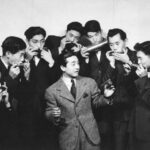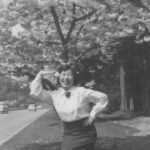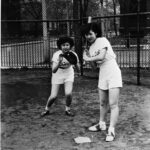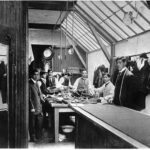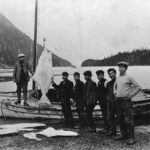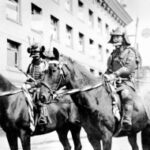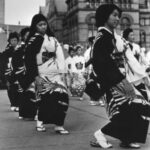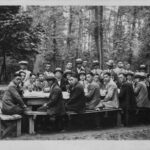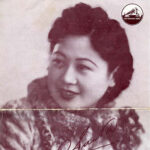The harmonica was the musical instrument of choice for young nisei Japanese Canadian men in the 1930s and 1940s. Raymond and Carolyn look at some reasons why it became so iconic for this generation, some of the more prominent players, and story of the Lemon Creek Harmonica Band.
> read moreArchives
Episode 22 – Cherry Blossoms
Join Raymond and Carolyn as they discuss figures in ancient Japanese folklore, botanical attractions in Vancouver and across Canada, and…mutants and clones? The Japanese ornamental cherry tree is all of these, not to mention a feature of spring in Japan and many places in Canada.
> read moreEpisode 21 – Baseball
In this episode, Raymond and Carolyn discuss the Japanese Canadian favourite of baseball. While the Vancouver Asahi are the most famous Japanese Canadian baseball team, there were many Nikkei teams and leagues throughout BC before the forced removal, in the camps during internment, and even some established east of the Rockies in the 1950s and beyond.
> read moreEpisode 20 – Cumberland
For our twentieth episode, Raymond and Carolyn look at the fascinating history of Japanese Canadians in the village of Cumberland on Vancouver Island. Coal baron Robert Dunsmuir began importing workers from Japan and elsewhere to Cumberland in the late 19th century. Labour disputes and racism were rampant, but the Japanese immigrants were also able to build lives there, moving from mining to logging and service industry work, and even bringing over their families and establishing a Japanese Language School. After the community was forcibly removed in 1942, efforts have been made by Cumberlanders in more recent years to uncover, preserve, and celebrate the multicultural history of the village.
> read moreEpisode 19 – Place Names
In this episode, Raymond and Carolyn discuss the who, what, where, when, and why of Japanese place names in Canada, from Ikeda Bay in Haida Gwaii to Bonsai Street in Vancouver, and even “Matane” in Quebec. While some are named in honour of early immigrants from Japan, others are more like tributes from afar to the idea of Japan and Japanese culture, or arrived at their names through a variety of interesting and surprising occurrences.
> read moreEpisode 18 – Samurai
In this episode, Raymond and Carolyn discuss the samurai way of life – from the Satsuma clan to Inazo Nitobe’s Bushido – and its possible influence on Japanese Canadian history and culture. While the figure of the samurai has been popularly mythologized in Western culture by the likes of Tom Cruise, many real-life samurai emigrated from Japan in the late 19th century to build new lives for themselves in places like Canada. Some went on to become Canadian citizens, and fight for their adopted country in the First World War.
> read moreEpisode 17 – Obon
In this episode, Raymond and Carolyn discuss the Buddhist holiday of Obon, and how it is celebrated in Japan and Canada. Obon is a summer festival held in remembrance of deceased ancestors, but rather than being a sombre occasion, it is seen as a time to celebrate and show gratitude to those who came before. It is one of the major holidays in Japan, and an important cultural occasion for Japanese Canadian communities across Canada.
> read moreEpisode 16 – Japanese (Canadian) Food
In this episode, Raymond and Carolyn discuss some of their favourite Japanese (Canadian) cuisine, sharing stories and interesting facts about different dishes. Do you have a favourite Japanese or Japanese Canadian food that we didn’t mention in the episode? Tell us about it!
> read moreEpisode 15 – Japanese Canadians in Japan
In this super-size episode, Raymond and Carolyn discuss various experiences of Japanese Canadians in Japan, from the kika-nisei, to the war years and the difficult experience of deportees after the war, to their own stories of living there as Canadians.
> read moreEpisode 14 – Aiko Saita
Raymond and Carolyn share the story of Aiko Saita, an international music star and Cumberland-born Nisei. Saita’s studies in Italy were funded by the Japanese Canadian community, who formed the “Saita Aiko Kouenkai” (Aiko Saita support group) to pay for her world-class training. Although she passed away in Japan in 1954, Aiko Saita maintained a deep connection with the Japanese Canadian community: her third North American tour was cut short by the illness which took her life. Even today, many Nisei still remember going to hear her sing.
> read more
